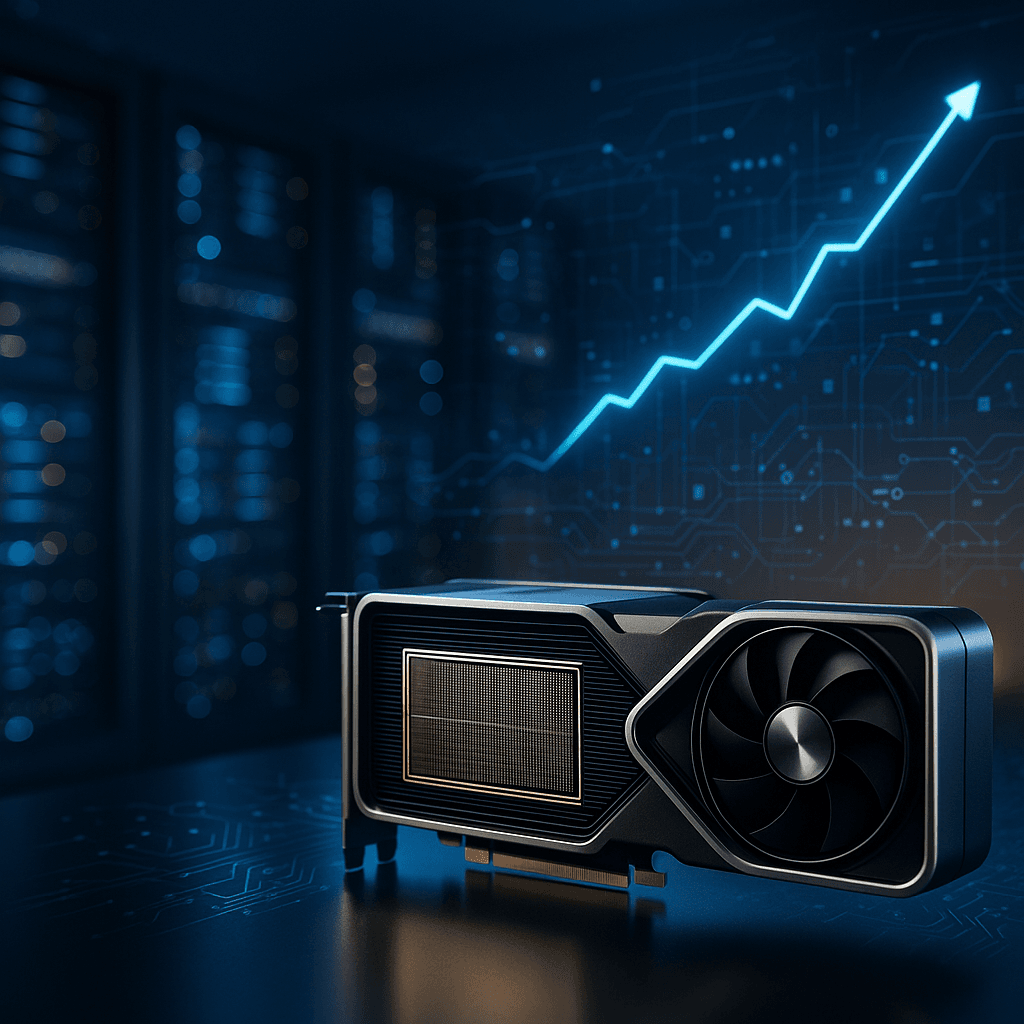The world's most valuable company faces its biggest quarterly test yet. Nvidia reports second-quarter earnings after the bell today, with Wall Street expecting $46.02 billion in revenue — a staggering 53% year-over-year jump that would cement the chipmaker's dominance in the AI gold rush. But two critical questions loom over the $4 trillion giant: how fast can Blackwell chips ship, and will China's pivot to homegrown semiconductors crater an $8 billion revenue stream?
The AI revolution's biggest beneficiary faces its quarterly reckoning today. Nvidia reports second-quarter fiscal 2026 earnings after market close, with analysts laser-focused on whether the chipmaker can sustain its meteoric growth trajectory that's made it the world's most valuable company at over $4 trillion market cap.
Wall Street expects adjusted earnings per share of $1.01 on revenue of $46.02 billion — numbers that would represent a breathtaking 53% year-over-year revenue surge. That growth would extend Nvidia's explosive streak that began when OpenAI's ChatGPT sparked the generative AI boom in late 2022, creating insatiable demand for graphics processing units.
The company's data center business now accounts for roughly 88% of total sales, transforming Nvidia from a gaming-focused chipmaker into the backbone of the AI infrastructure buildout. But analysts are drilling down on two critical questions that could shape the stock's trajectory.
First up: Blackwell chip production. CEO Jensen Huang previously stated that Blackwell sales would be constrained by manufacturing capacity, not customer demand — a remarkable position for any semiconductor company. The GB200 configuration, featuring 72 GPUs in finished rack computers costing millions of dollars each, represents Nvidia's next-generation architecture.
"That's probably going to be the most important thing, because I think right now, demand is clearly outstripping supply," KeyBanc analyst John Vinh told CNBC. Investors want concrete timelines on when Blackwell production can scale to meet the overwhelming demand from hyperscale cloud providers and enterprise customers racing to deploy AI capabilities.
The second major concern centers on China, where geopolitical tensions threaten to upend Nvidia's business model. The company introduced the H20 chip in 2023 as a compliance-friendly version for Chinese markets, but regulatory whiplash has created uncertainty. The Trump administration initially required licenses for H20 sales in April, then granted those licenses in July — only to see Beijing signal in August that Chinese tech companies should prioritize domestic semiconductor alternatives.





